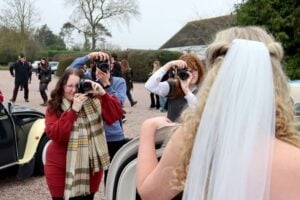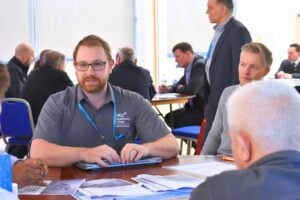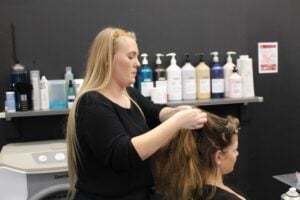Inspired by conservation efforts and a newfound passion for the environment, Jess decided to study Access to Higher Education: Veterinary Science and Zoology at College.
Our Access to HE Programmes are one-year courses, specially designed for learners aged 19+, provides a fast-track route to degree-level studies and new careers, ensuring you can achieve your aspirations.
She spoke to us about why she chose EKC Canterbury College, how great it has been to return to education, and what she hopes to do next with her newfound skills.
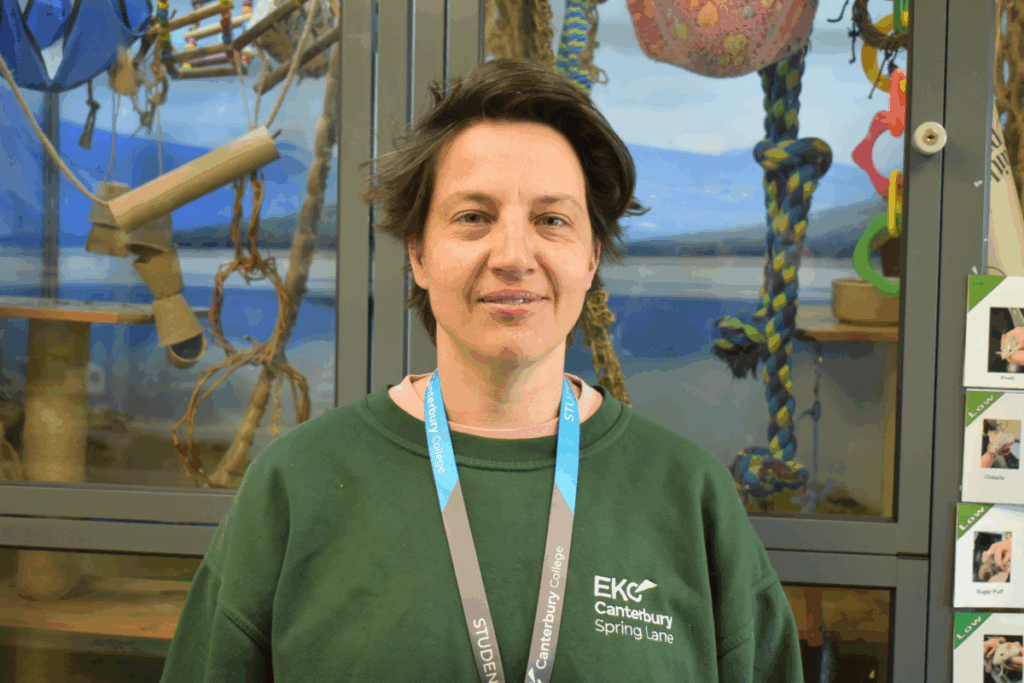
What made you decide to study Access to HE: Veterinary Science and Zoology?
“Before I enrolled on this course, I was running my own business as an antiques dealer. I enjoyed it very much, but after about seven years, I didn’t find it that challenging anymore.
“I’ve recently become interested in conservation efforts, and I’d like to get involved in improving things for wildlife in the UK, so I wanted to go back to education to study more about science and nature.”
How did it feel coming back to education as an adult?
“At first, I was a bit nervous because I didn’t know what to expect and what the intensity of the course would be, or how difficult the material we’d be studying was.
“Once you start, get enrolled, receive your timetable, and meet the lecturers, you can relax. They’re all very friendly and very helpful so I knew it was going to be lots of fun.
“The idea of returning to education seemed a challenge at first, but the team have been so supportive and enable me to learn so much.”
What has your experience been like as an Access to HE student?
“My experience has been excellent, and I’ve really loved the course. I think it’s great that it’s one year, as you’re really able to tackle all the subjects.
“It’s been fun getting back into education and overall, it’s a great environment. I’ve made lots of friends and we’re a small group, but we’re all a team together.
“The course is hard work, but there are so many rewards and I’ve taken part in many opportunities.”
What’s been your favourite parts of the course?
“The course is absolutely brilliant so I’ve got lots of favourite parts. I think it’s really good to have the experience of learning biology and chemistry alongside hands-on experience in the veterinary science modules on the course.
“We’re based on the Spring Lane campus most of the time and it is just the most fantastic resource ever. There are some brilliant new buildings in the Chestnut block, and they’re all designed in line with eco-friendly practices. We’re surrounded by lots of greenery and plants and it’s a really pleasant environment.
“I always love spending time with the animals, such as the rodents, the wallabies, the tortoises or the reptiles for example. You really do get that one-on-one experience and interaction with all the animals, thanks to the access to the Spring Lane campus.”
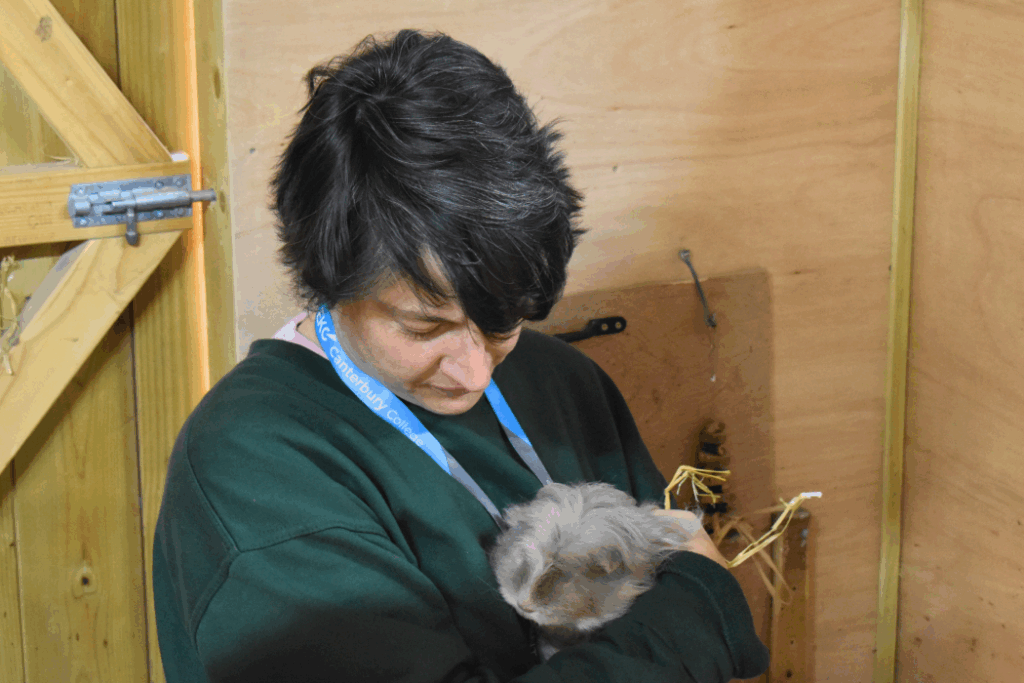
Which opportunities have you been involved in this year?
“There’s many brilliant extracurricular activities I can take part in on my course. I helped out at Spring Fayre, which is when we open Spring Lane to the community and they can come and see the animals, and they can interact with our animals.
“I also took part in a mini Careers Fair that was at the beginning of the year. That was wonderful because we met many employers, and I got work experience thanks to that. I did two weeks of work experience over my Easter holiday, researching animals.
The absolute best activity was a trip to the New Forest with a small group. We were there for four days and we did reptile surveys and we looked at the landscapes. It was great.”
How do you balance studying around your life?
“I balance studying with my responsibilities outside of College by focusing on my time management. I know what assignments I’m doing and I can then plan out how much time I need to spend on those.
“After being here for a few weeks, you get into a pattern and routine which really helps. You know what has to be done and you know at what level it has to be done.”
How have the lecturers and classmates supported you on the course?
“The lecturers are very supportive on this course because it’s a small group. We get to know them and they get to know us really well. You can go to them at any point to talk to them about any concerns you have.
“If you want some clarification about work, they’ll talk to you about that when you need. They’ve also been really supportive on university applications, such as how to apply for UCAS and also how to write your personal statement.
“One of my lecturers is still a veterinary nurse, so she has real world experience that she can impart on us which is fantastic.
“I get on really well with my classmates and we often share tips. If we’re struggling with work, we talk to each other and help each other find solutions. We also talk lots about our future plans and going to university or going into the world of work.”
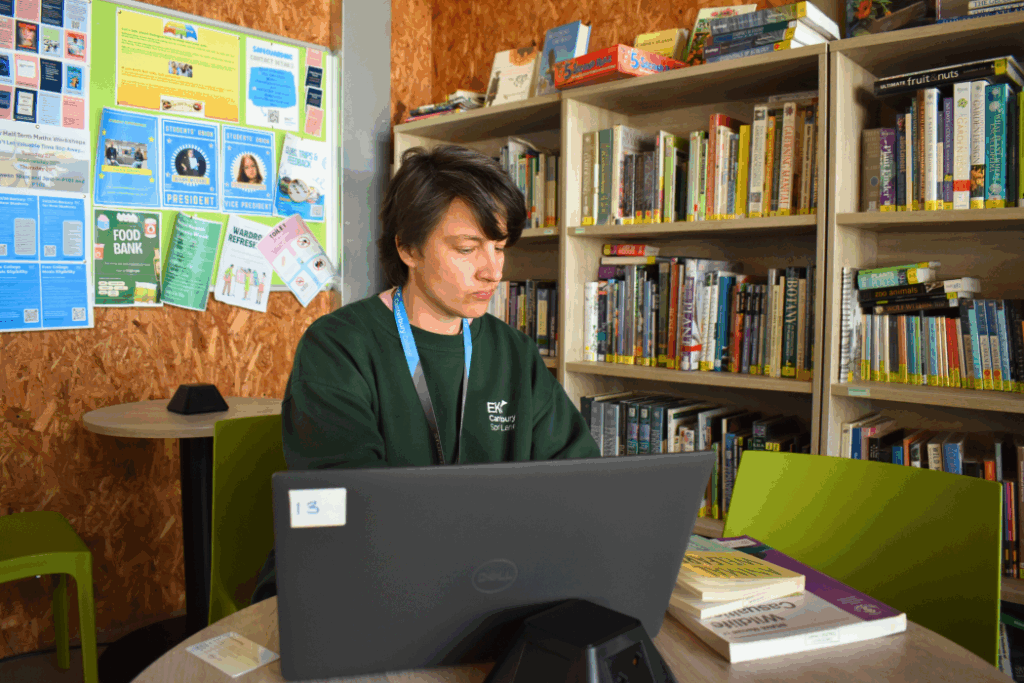
Has studying Access to HE changed how you see yourself?
“Studying Access to HE has definitely changed how I see myself and what I think I’m capable of.
“As an example, Chemistry is something I’ve struggled with in the past, but it’s now one of the things that I’ve enjoyed the most. You can prove to yourself here that things aren’t impossible to learn.
“As I say, I was quite nervous going into it because I didn’t know what to expect and I didn’t know what the level of study would be.
“However, I’m surprised at how much I’ve enjoyed it. I think it’s been tough at times, but I’m surprised how disciplined I’ve managed to be.”
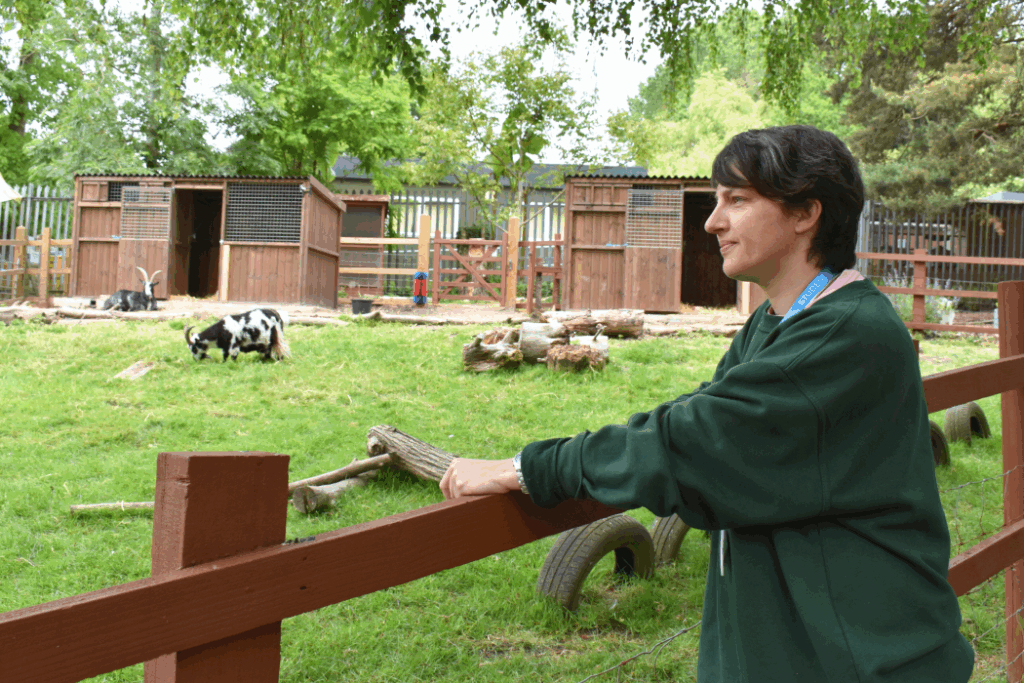
What would you like to do when you finish this Access to HE course?
“After the course, I think I want to go straight into work rather than to university. I already have a degree in Art History that I took about 20 years ago, but I’d love to go into conservation of British wildlife.
“My plan is to finish the course and then go and get a job at an entry-level, preferably in a conservation charity in Kent and then work my way up from there. Then potentially, because I’ve enjoyed this year so much, then think about further study later on once I have employment and more experience in the relevant field.”
Would you recommended studying an Access to HE course?
“I definitely recommend studying an Access course because it’s a different environment to school. It’s a lot more friendly and a lot more informal.
“The advice I’d give to someone who’s thinking of starting this course is obviously do your research, see if it is the best fit for you. I’d say come to an Open Day, ask questions and have a look round at the facilities. I think you’ll be very impressed by what you see.
“On the course, make sure you take advantage of all the resources, whether that’s the animal unit or the learning resource centre, the laptops and also the knowledge of all your tutors.”
What would you say to someone who thinks it’s ‘too late’ to get back into education?
“I’d say it’s never too late to go back to education, especially in a setting like this, because it is more informal and because the tutors are very supportive. It’s a super pleasant environment here at Spring Lane that I think you’ll enjoy being in.
“If you’re not satisfied with what you’re doing now, if you don’t feel fulfilled by your job, then think about doing something else. Whatever you are passionate about, you should go and pursue that, and EKC Canterbury College is a fantastic place to explore your options at.”
Thank you to Jess for sharing her experiences, both on the Access to HE course and as an adult learner.
If you’re inspired by her story, why not explore our Access to Higher Education courses, or discover our wide study options for adults.
